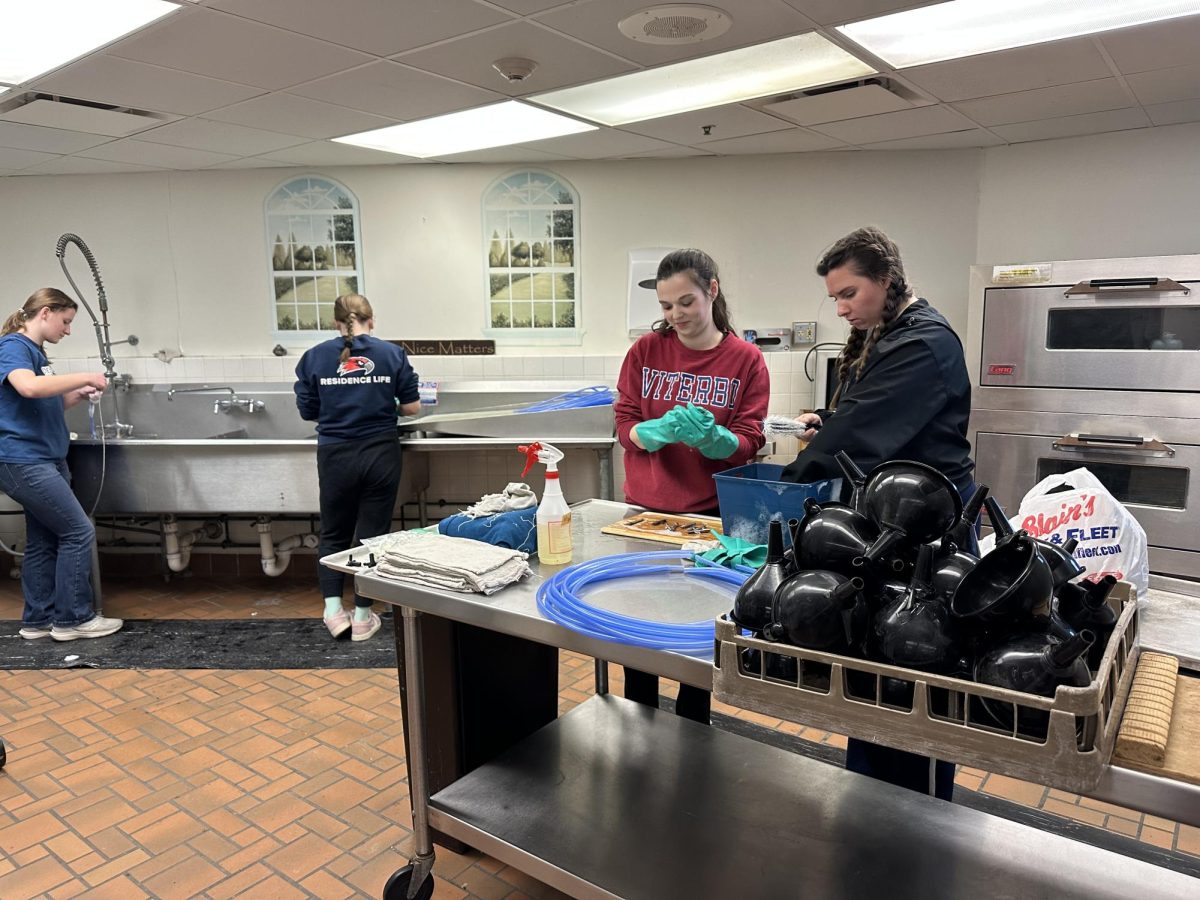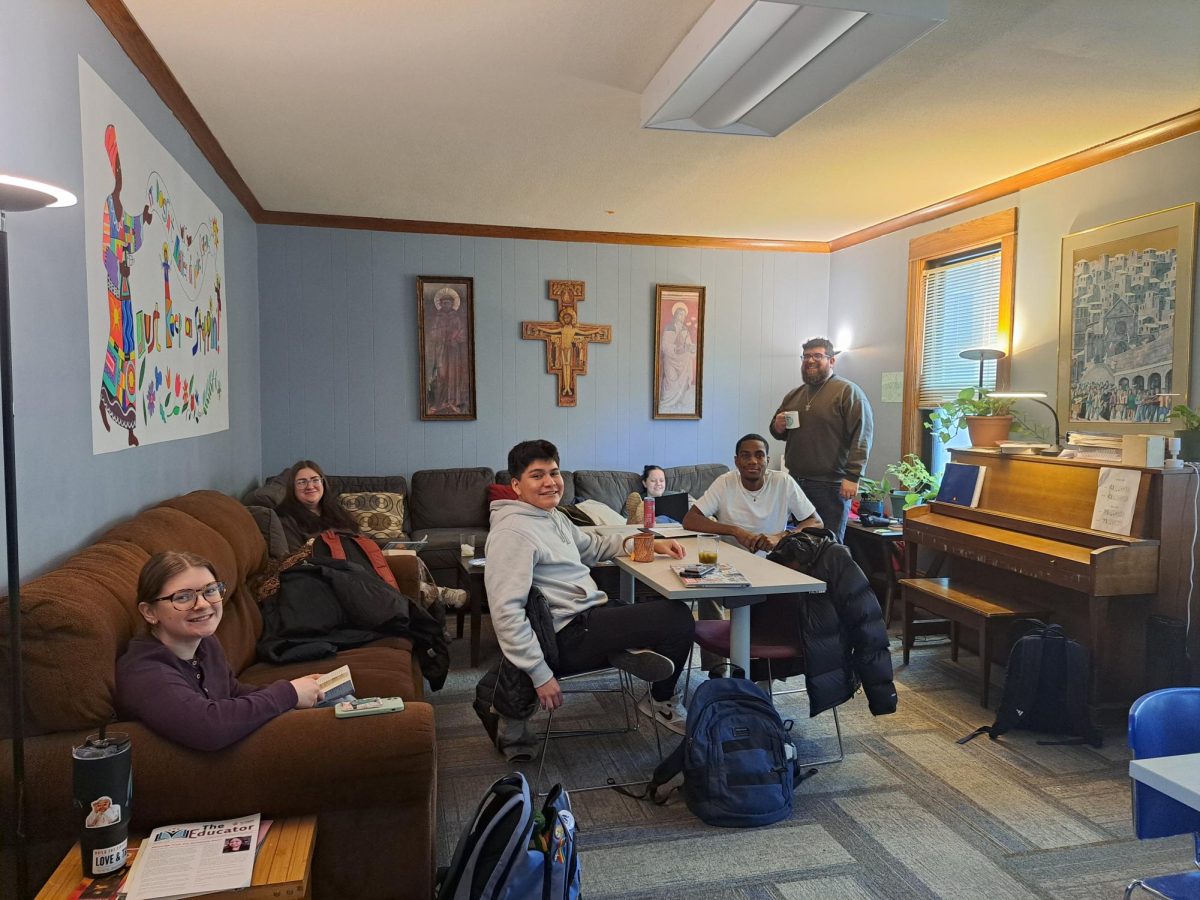Big cost with little reward: Should the cost of meal plans be lowered?
October 4, 2022
College meal plans are designed to provide students with the convenience of not having to cook, budget, and buy groceries. For students without transportation or culinary skills, meal plans can be beneficial. First-year students benefit the most from meal plans. Without access to premade meals, students tend to rely on snacks, fast food, or skip meals rather than eating a balanced diet.
Nutrition is important for the wellbeing of college students. A balanced diet can help boost your immune system, increase energy levels, improve memory, and reduce stress. Many universities only require first-year students to purchase meal plans, while some require all students to do so while living on campus. Meal plans often provide students with “cash” to spend at coffee shops and restaurants located on campus.
The downside to student meal plans is the cost. They can run students upwards of $4,000 dollars a semester. This can be a lot for those with loans or out-of-pocket expenses. Big universities often serve a wide variety of food and provide students with 24-hour access. Students that attend smaller universities tend to have limited options and access. Additionally, meal plans, especially those at small schools, can make it harder for students with dietary restrictions to have a balanced diet.
It is stated in Viterbo’s contract with Aramark that all students living on campus purchase a meal plan. The only exception is for students with Celiacs Disease. The contract does not recognize any other disability, medical condition, or dietary concerns for exemption. The Caf is only open until 7:00 p.m. Monday through Thursday, 6:30 p.m. on Friday and Sunday, and 6:00 p.m. on Saturday. Einstein’s and The Pod have limited weekday hours as well and are closed on weekends.
With a small student body and nationwide worker shortages, it is easy to understand the dining limitations. However, students on campus pay between $3,900 and $5,670 each academic year for meal plans. Since 2019, the Caf has limited their meal options and the amount of food made. Students’ options have been decreased but the average cost for a meal plan has increased over $200 per plan.
The price of meal plans is quite high considering the limited options and availability offered. According to Viterbo’s Residence Life website, a 7-day All Access meal plan is equal to $611 a month. The USDA states that on average college students spend between $163 and $367 per month on groceries. Most students at Viterbo must buy food in addition to paying for their meal plan. Students with dietary concerns or busy schedules spend even more.
The Caf’s hours of operation can pose issues for students with busy schedules. If a student has work, class, or an extracurricular obligation between 4:30 and 7 p.m., they miss the opportunity to have dinner. If a student is in class for the school’s breakfast or lunch period, they miss the opportunity to have a balanced meal. The Caf does provide students with access during hours of operation, but the options are limited and do not provide adequate nutrition. This becomes more difficult for students with dietary concerns or restrictions.
The Caf provides students who have dietary concerns with little to no options during late meal periods. During meal periods the Caf does not provide these students with a balanced diet. They have reduced the number of nutrition information tags located above the meals. Students with dietary concerns must ask for more information and often receive uncertain answers. The Caf’s website provides more dietary information but lists meals that are not being served.
If Viterbo cannot provide all students with a balanced diet and access to food, the cost of meal plans should be lowered. Aramark offers two different contracts to institutions: a fixed pricing contract and a variable pricing contract. The fixed pricing contract allows the institution to control the cost of meal plans, while the variable pricing contract allows Aramark to determine the price based on the costs of the program.
Each contract has different key elements, and Viterbo should select a contract that benefits students. If Viterbo sets the price for student meal plans, they should consider lowering the cost or providing students with more options. If the school does not have control over cost, they should reconsider their contract with Aramark. Overcharging for meal plans is not in the best interest of the student.
Nutrition is important for college students and their success. If Viterbo requires students living on campus to purchase a meal plan, they need to provide all students with access to a healthy, balanced diet and provide accurate nutrition information with each meal.


